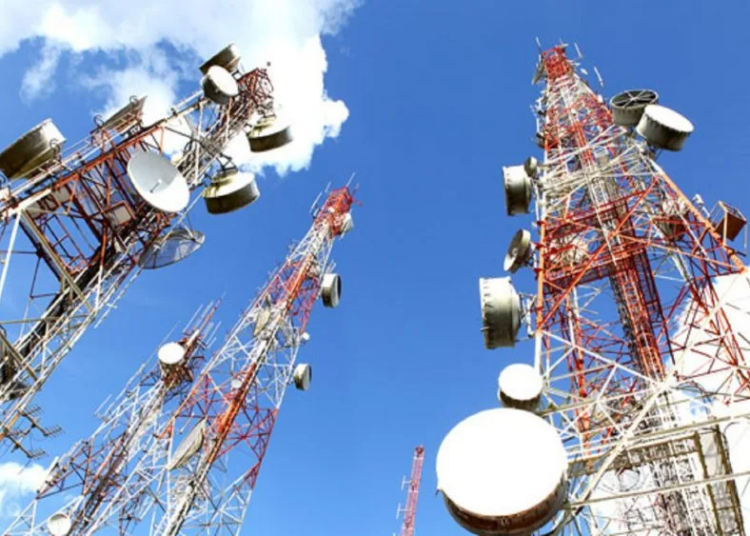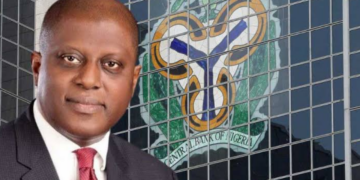As 2025 unfolds, Nigeria’s Information and Communications Technology (ICT) sector stands at a critical juncture. The industry is being shaped by ongoing cries for tariff adjustments, relentless competition, innovative collaborations, and targeted investments in infrastructure and human capital.
These factors are set to drive transformative change and redefine the sector’s future in ways that will impact millions of Nigerians and businesses reliant on digital connectivity.
No doubt, the telecommunications industry has long been a pillar of Nigeria’s economy, contributing significantly to the national GDP. In 2024 alone, the sector was instrumental in driving the services sector, which dominated the GDP at 53.58 per cent in Q3 2024, up from 52.48 per cent in Q3 2023, a testament to its pivotal role in driving commerce, education, healthcare, and governance.
However, the sustainability of this growth has come under threat due to mounting operational challenges.
READ ALSO: Telecom Operators Signal Major Service Disruptions In 2025, Seek Urgent Reforms
Operators are grappling with economic pressures that threaten service delivery. Rising inflation, volatile exchange rates, and escalating energy costs have significantly increased operational expenses.
For instance, energy costs alone constitute up to 40 per cent of network operating expenses, given the dependence on diesel-powered generators to keep cell towers running. Yet, telecom tariffs have remained static for over a decade, leaving operators struggling to sustain and expand their networks.
Chairman of the Association of Licensed Telecommunications Operators of Nigeria (ALTON), Gbenga Adebayo, has warned that without immediate tariff adjustments in 2025, the sector risks service disruptions.
According to Adebayo, the current economic realities demand that tariffs reflect the true cost of delivering telecom services, adding that without this adjustment, maintaining and expanding infrastructure may become unsustainable.
He further noted that without intervention in 2025, operators might resort to service shedding, selectively limiting connectivity based on geography or time, which could have devastating consequences for essential sectors like healthcare, education, and commerce.
The minister of Digital Communications, Innovation and Digital Economy, Dr. Bosun Tijani, echoed these concerns but emphasised the importance of structural reforms beyond tariff hikes.
He stressed the need for investments in digital infrastructure and innovation to ensure the sector’s long-term competitiveness.
Tijani revealed that the government is conducting a comprehensive study to assess the sustainability of the telecommunications sector. The results, expected in 2025, will guide policies to address the industry’s challenges.
“The study will help us see results in the next one or two weeks on the sustainability of our telecommunication sectors. What are the things we need to do to ensure that we can support them to be a lot more sustainable – beyond just the conversation that has been out there about increasing tariffs, which is what everybody is talking about? “We think, yes, there may be a need for it, but there’s so many other things that we need to do as a country to ensure that that sector is competitive; and And beyond just supporting them to be competitive, that governments must also invest in digital infrastructure as well,” the minister explained.
Meanwhile, the National Association of Telecommunications Subscribers (NATCOMS) has urged a balanced approach to tariff adjustments. Its president, Adeolu Ogunbanjo who spoke with LEADERSHIP, proposed a modest increase capped at five percent, ensuring affordability while enabling operators to improve service quality.
He also highlighted that telecom services have resisted price hikes for over a decade, despite inflationary pressures affecting every other sector.
Another development that will shape the telecom sector in 2025 is competition. Nigeria’s telecom industry remains one of Africa’s most competitive, with major players like MTN, Airtel, Globacom, and 9mobile constantly vying for market share. However, the 2024 mandate linking SIM cards to National Identification Numbers (NINs) caused a major shake-up, reducing the nation’s mobile subscriber base by 30 per cent.
This unprecedented decline resulted in operators disconnecting over 64 million lines due to unverified NINs. The fallout affected their revenue streams and will force them to rethink strategies for subscriber retention and growth in 2025, IT experts have predicted.
“As competition intensifies in 2025, operators are expected to ramp up innovation and infrastructure investments to retain and expand their subscriber base. I predict that operators will increasingly focus on data-driven services, bundle offerings like video streaming, e-learning, and e-commerce platforms to differentiate themselves in the market,” IT specialist, Jide Awe told LEADERSHIP.
Collaboration is also emerging as a key strategy for growth in the ICT sector in 2025. Awe highlighted the high cost of laying fiber infrastructure, noting that 70 percent of the costs are attributed to digging trenches. He advocates a “dig once” policy to significantly reduce expenses.
According to him, infrastructure sharing, as demonstrated in other African markets, offers a cost-effective means to expand coverage.
“For instance, in Tanzania, telecom operators have successfully pooled resources to build shared fibre networks, significantly reducing costs and improving efficiency.
“Adopting similar practices in Nigeria could enhance sustainability and competitiveness. Policies such as the proposed “dig once” initiative, which minimizes the costs of laying fibre infrastructure by coordinating excavation efforts, could further boost efficiency and lower operational expenses,” Awe advised.
Global partnerships are another driver of progress. Under Tijani’s leadership, collaborations with tech giants like Microsoft, Google, and AWS are addressing connectivity gaps, particularly in underserved rural areas. Satellite-based solutions and expanded base stations are expected to extend reliable internet access to even the most remote locations.
Tijani highlighted the government’s deployment of 90,000 kilometres of digital backbone infrastructure as a game-changer that will significantly enhance connectivity and productivity.
“The government’s initiative to deploy 90,000 kilometres of digital backbone infrastructure is a testament to this collaborative approach.
“While private companies focus on profitable urban areas, the government is stepping in to address connectivity gaps in rural and underserved regions.
“Satellite-based solutions and the expansion of base stations are central to this effort, ensuring that even the most remote areas gain access to reliable internet services. We should expect to see more collaboration in 2025,” Tijani averred.
There is also the need to build human capacity as it is central to Nigeria’s digital transformation agenda. The 3 Million Tech Talent (3MTT) initiative, launched in 2023, has trained over 180,000 individuals and is scaling up significantly in 2025.
By aligning with global standards and partnering with initiatives like the Nigerian Apprenticeship and Training Expansion Program (NATEP), the programme aims to position Nigeria as a global outsourcing hub. This year, the initiative is expected to create thousands of new job opportunities while attracting foreign direct investment.
The programme’s success is evident in the testimonies of participants who have transitioned into high-paying tech jobs both locally and internationally. In 2025, the government aims to further expand the programme, introducing specialised tracks in fields such as cybersecurity, cloud computing, and blockchain technology to meet the growing demand for skilled professionals.
Nigeria is also gaining traction in Artificial Intelligence (AI), ranked among the top 60 nations by the United Nations. Startups supported by government-backed initiatives are developing AI-driven solutions for agriculture, healthcare, and education. For instance, an AI-powered diagnostic tool developed by a Nigerian startup is helping rural healthcare centres identify diseases more accurately, reducing mortality rates. These innovations are poised to boost the GDP while addressing local challenges.
“In 2025, the government plans to transition from strategy to execution, showcasing practical applications of AI in sectors like agriculture, health, and education. Startups funded through government initiatives are expected to deliver groundbreaking solutions that address local challenges and contribute to the national GDP. Additionally, hosting events like the AI Safety Summit could further solidify Nigeria’s position as a global leader in this transformative field,” Tijani disclosed.
The anticipated Digital Economy Bill, expected to be enacted this year, will redefine the governance of Nigeria’s digital economy. The bill aims to foster innovation, attract investment, and ensure inclusivity.
Other regulatory advancements include a national web design standard to enhance accessibility for government services and a data exchange system among government agencies to streamline operations. These measures will improve service delivery and create a more citizen-centric governance model.
“As 2025 progresses, Nigeria’s ICT sector is poised for a transformative year. The government, private sector, and international stakeholders must work together to address challenges and harness opportunities. By balancing tariff increases with affordability, fostering competition-driven innovation, and leveraging collaboration and human capital, Nigeria is well-positioned to solidify its leadership in Africa’s digital economy,” Awe advised.





